The donkey kick (also known as the kneeling rear leg raise), as a basic self-weight movement, is often overlooked by most of our partners. But in fact, trained properly, can not only help you master how to fully and efficiently activate and mobilize the gluteal muscles and establish a strong neuromuscular induction; at the same time, it can promote its thriving growth. The little ones in the harvest full hip shape at the
same time, weight training performance also more rapidly improve!But on the other hand, if you want to achieve these effects effectively, when practicing donkey kicks, in addition to making sure the movements are accurate and the amplitude is in place, the most crucial point is to emphasize and feel the full contraction of the gluteus muscles, not just to repeat the movements, especially to avoid the following 3 major high-frequency errors that significantly affect the gluteus muscle force!
01 Excessive pursuit of amplitude
In daily training, many partners often mistakenly believe that the greater the range of action, the stronger the effect of muscle force; but in fact, the pursuit of the range of action is often the root cause of the wrong play of the main points, nerve-muscle induction weakened, other parts of the muscle to assist the force!
In the practice of donkey kick, if some partners only focus on the amplitude of the leg lift up, there will often be a lack of control of the movement, back bending, and even the wrong posture of the hip out. This significantly weakened the gluteus muscle force, completely rely on the back muscles, or thigh hamstrings in the force. Even with a lot of practice, this is almost meaningless in terms of stimulating the glutes!
Therefore, you must focus on the contraction of the gluteal muscles to complete the movement of raising the leg and extending the hip. Make sure that the movement is controlled, that the movement is accurate and that the force is sufficient, that you lift to the highest point of your ability, and that you stay at the top for a little while to further contract and feel the force of the gluteal muscles.
Also, you can even try small movements above and below the peak to feel the strong force on the gluteal muscles while training them to full strength!
02 Hip angle fixation
When practicing donkey kicks, most partners often think they must keep their hips tight and their legs vertically up and down in the posture! But sometimes, there is not only one correct way to practice a movement; especially if you can't fully feel the strong operation of the hip muscles in that posture, try to practice the donkey kick with the hips moderately abducted and the legs slightly open outward.
This is actually the same reason as practicing deep squats, opening the knees outward slightly to more strongly mobilize the gluteals.
Of course, whether you choose to practice donkey kicking with your hips inward or outward depends on your own muscular feelings, which allows you to more strongly experience the contraction of the gluteus muscle, the most suitable!
But if you choose the hip abduction posture practice, be careful not to confuse "donkey kick" with "hip abduction" these two movements. At this point, just maintain a moderately open hip posture, the overall trajectory of movement is still backward and upward, bearing in mind that the heel towards the ceiling, rather than moving back and forth sideways!
03 Over-emphasis on knee bending at 90 degrees
Finally, in the practice of donkey kick, some partners pay too much attention to bending the knee cap to 90 degrees, eventually leading to a significant force of the hamstrings on the back of the thigh, dominant action, and may even cramps, soreness; and greatly weaken the force of the hip muscles.
To avoid such problems, it is recommended that you relax your legs moderately, with your calves slightly outward, and keep them at about 90 degrees overall. The most crucial thing is to focus on the full contraction of the gluteal muscles to generate force.
Ultimately, the primary purpose of the basic donkey kick is to help you establish a strong neuromuscular sense. Therefore, under the premise that the overall posture is accurate, small adjustments to the hip angle, knee bending, and other details to feel the strongest and most powerful contraction of their own hip muscles are the most efficient and reasonable way to practice.



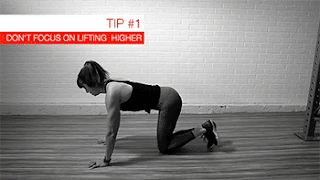
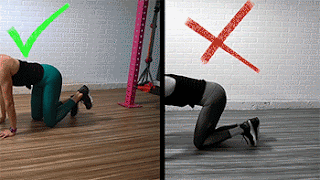

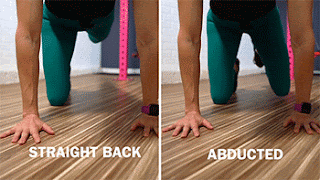
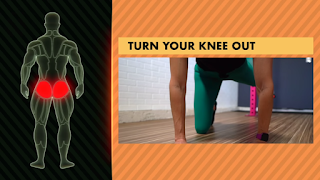
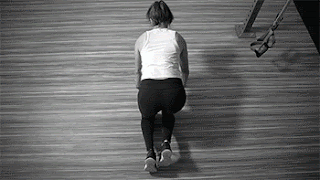




No comments:
Post a Comment